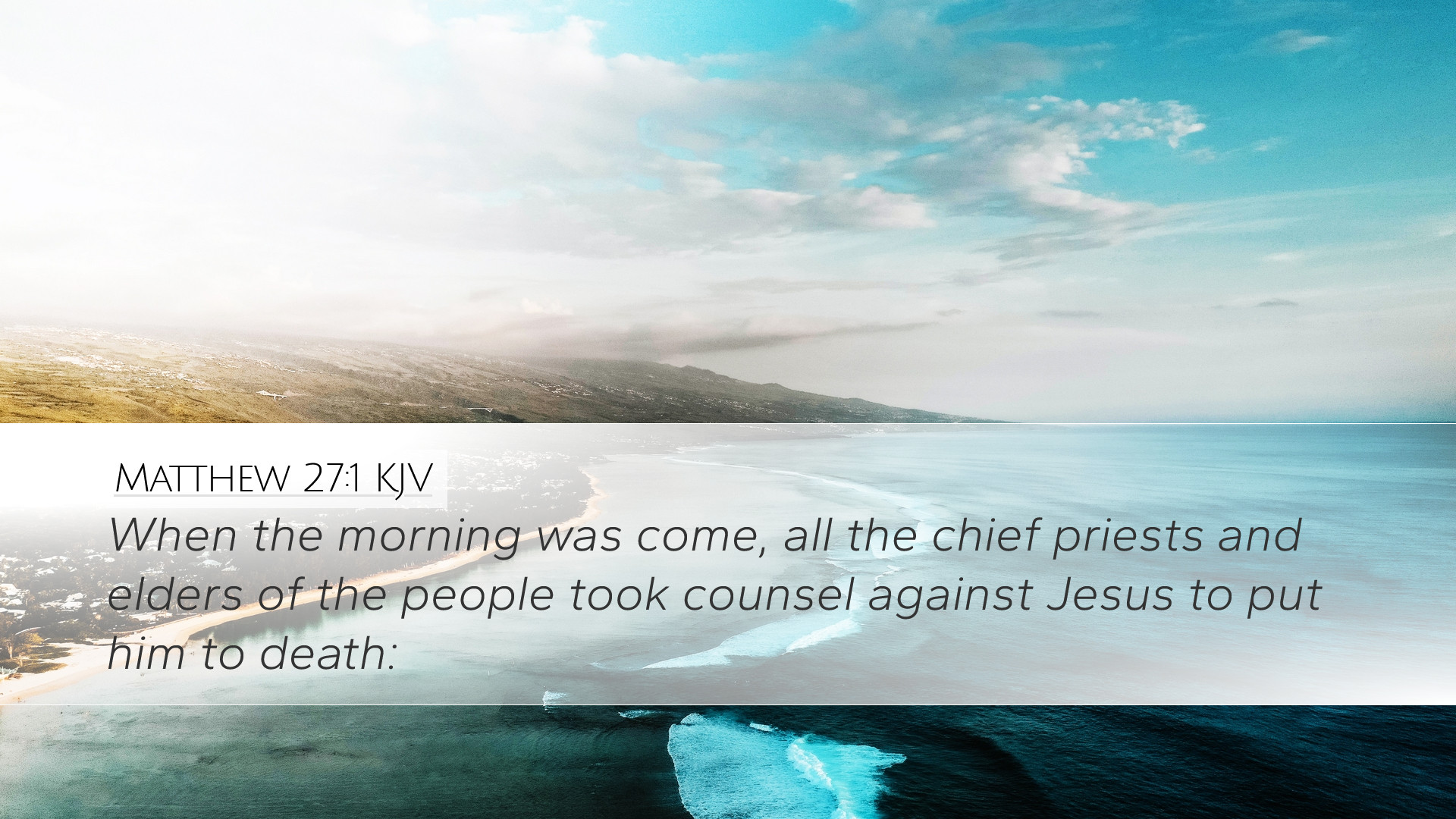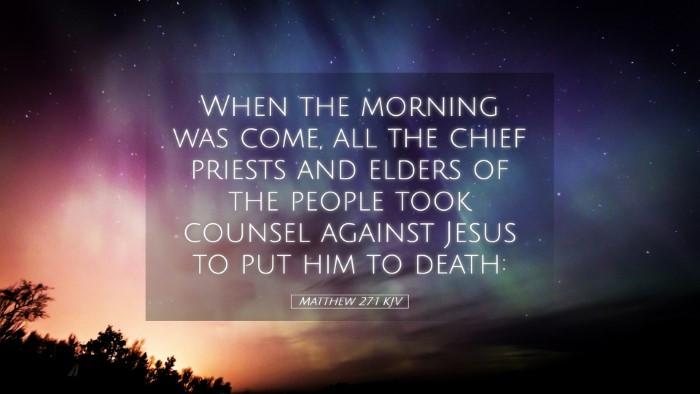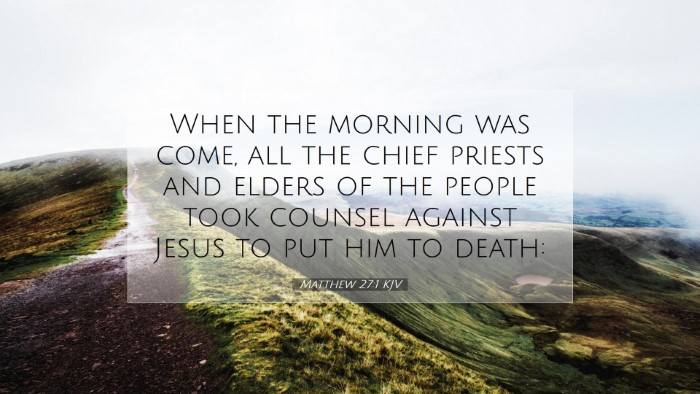Commentary on Matthew 27:1
Verse Reference: Matthew 27:1 - "When morning came, all the chief priests and elders of the people took counsel against Jesus to put him to death."
Contextual Overview
This verse marks a critical moment in the Passion narrative where the conspiracy against Jesus culminates. It occurs after Jesus' arrest, illustrating the intentional and united effort of the religious leaders against Him.
Insights from Commentaries
Matthew Henry's Commentary
1. The Diligence of the Wicked: Matthew Henry notes that the leaders, upon daybreak, did not delay in their malicious intent. Their readiness to conspire speaks volumes about the orchestration behind their plot.
2. The Nature of Their Counsel: Henry suggests that both the chief priests and the elders represent the culmination of religious authority, indicating that this was not just an impulsive act but a premeditated decision made within the realms of authoritative governance.
3. The Seriousness of Their Intent: The decision to seek Jesus' death is significant, symbolizing the rejection of divine truth by the very leaders who were supposed to protect it. The council represents a formal gathering of those who should be leading the people towards righteousness, yet they are instead leading them towards injustice.
Albert Barnes' Notes
1. The Timing of Their Actions: Barnes emphasizes the symbolism of morning as a time for judgment and action, which contrasts with the darkness of their plots. The leaders’ actions signify a moral and spiritual decision as they embody the epitome of betrayal against the light of Christ.
2. The Council’s Scope: He explains that the unity of the Sadducees and Pharisees in this conspiracy reveals a shared opposition to Jesus that transcended their usual theological differences, demonstrating the depth of animosity towards Him.
3. Human Nature and Intent: Barnes discusses the natural inclination of humans to seek counsel among like-minded individuals, showing how sin often creates alliances even among those who are typically adversarial. This signifies the universality of sin and the resolve of the leaders despite their differing beliefs.
Adam Clarke's Commentary
1. The Council Gathered: Clarke notes that this gathering indicates the culmination of numerous discussions. It emphasizes that this was not merely about executing a sentence but rather about justifying their actions in the eyes of the law.
2. Their Motivation: He outlines that their zeal for the law blinded them to the grace of Christ, showing that tradition can often eclipse spiritual truth. Their decision reflects a broader theological conflict where the new covenant represented by Christ threatens their established order.
3. The Role of Influence: Clarke also draws attention to the influence of these leaders over the populace, portraying their conspiracy as duplicitous; they sought to maintain power under the guise of law and order while committing an act of severe injustice.
Theological Implications
This verse challenges readers to consider the nature of authority and the use of power in religious contexts. The collusion of the chief priests and elders serves as a cautionary tale regarding the responsibilities of spiritual leadership. It compels current leaders and theologians to reflect on their motives and the potential for misusing their position.
Reflection for Modern Application
As we contemplate this passage, it invites pastors and scholars alike to examine the integrity of their teachings and the motivations behind their decisions. How often do we see the desire for power, influence, or control overshadow the mission of guiding others to Christ?
In a contemporary context, one can draw parallels to the way church communities may conspire against progressive revelations of truth in the face of tradition. This text serves as a reminder that true leadership in faith must be grounded in humility, compassion, and adherence to the will of God, rather than the conformity to human-made structures.
Concluding Thoughts
The events chronicled in Matthew 27:1 reveal the tragic realities of the human condition—pride, ambition, and the perils of religious authority unchecked by accountability. Recognizing these patterns within the framework of church history and personal practice enables a deeper understanding of the call to integrity within faith communities.


